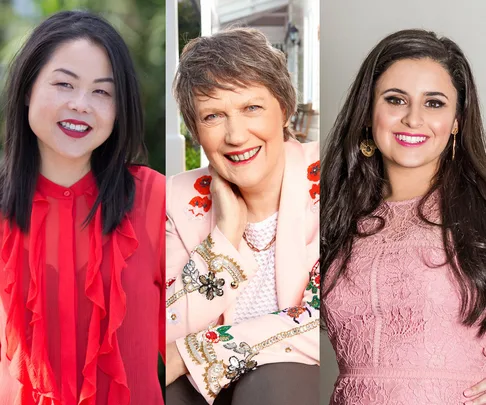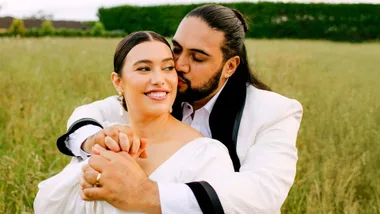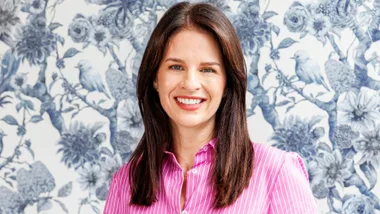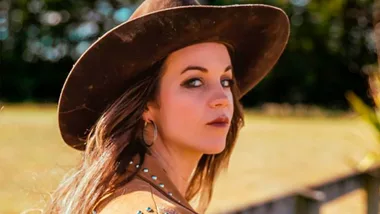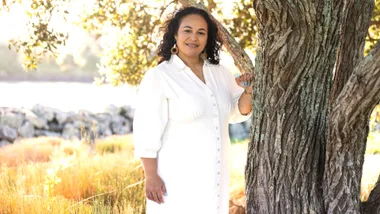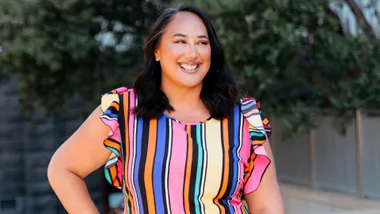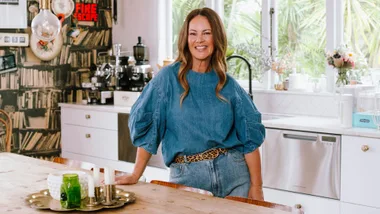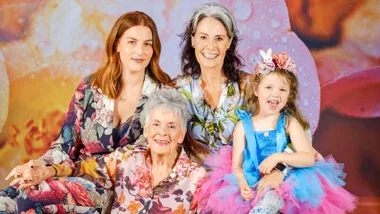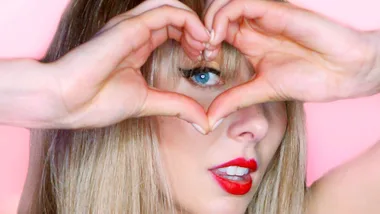
Helen Clark
Helen Clark held the reigns as Prime Minister of New Zealand for nine years (1999-2008) and went on to make her mark in world politics, working for the UN (United Nations). Her accolades include: being awarded the annual Peace Prize of the Danish Peace Foundation for promoting nuclear disarmament in 1986; she also maintained New Zealand’s nuclear-free zone status. In 2005 Clark won an award for restoring law and order in the Soloman Islands. In 2009 she was voted Greatest Living New Zealander in a poll run by the New Zealand Herald and in 2016, Clark stood as secretary general of the UN. While she wasn’t successful she hopes the world is ready to vote a woman in as the UN’s next secretary-general – she’ll be putting the full weight of her support behind her. It’s really no wonder she was ranked 22 on The World’s 100 Most Powerful Women list published in Forbe’s magazine.

Kristine Bartlett
Kristine was named 2018 New Zealander of the Year for her groundbreaking legal battle that won a pay equity claim for care and support workers. She also received NEXT magazine’s 2017 Woman of the Year Award. Having worked at a rest home for 24 years for only $14.46 an hour, Kristine made history when she campaigned for, and won, equal pay for 55,000 low-paid workers. Backed by her union, E tu, Kristine’s five-year fight for equal pay took her all the way to the Supreme Court, and was hailed by the Human Rights Commission as a “historic step forward for gender equality”. It led to the government establishing a working group to develop principles for dealing with pay equity claims.

Lisa King
Eat My Lunch founder Lisa King was a finalist in this year’s Kiwibank New Zealander of the Year Awards. The entrepreneur and mother of two has changed the lives of Kiwi kids living in poverty with her business, which, for every lunch ordered through Eat My Lunch, another is donated to a child at a low-decile school. By the end of Eat My Lunch’s first 12 months, they’d delivered 178,000 lunches to kids who would otherwise go hungry. By the end of their second year, in 2017, they’d delivered 450,000. The former marketing executive says, “We are set up as a social business. We have a clear delineation: when people buy a lunch, that funds a lunch for the kids; we don’t rely on or ask for donations.”

Jacinda Ardern
Prime Minister Jacinda Ardern is the world’s youngest female head of government and only the second world leader to have had a baby while in office. Ardern became our 40th Prime Minister in 2017, only a few short weeks after becoming Labour Party leader and Leader of the Opposition. She announced her pregnancy soon afterwards, sparking national debate over whether an employer can ask a female candidate in a job interview if she has baby plans (it is not okay, for the record). Ardern’s first 100 days as Prime Minister proved a whirlwind, where she got straight down to business increasing Paid Parental Leave, introducing a first-year-free to university students and addressing child poverty and mental health issues. Her dual foray into motherhood and leading a country has made her both an accidental poster girl for working mothers and a global sensation. Former Prime Minister Helen Clark is a big fan.

Lecrecia Seales
Lecretia Seales was a highly regarded lawyer who became an advocate of physician-assisted dying after suffering a brain tumour and presenting a case to the High Court that would allow her doctor to help her die without criminal prosecution. She was unsuccessful in winning her landmark case, and died in June 2015 at the age of 42 of natural causes shortly after receiving the ruling. But her efforts were far from made in vain. Lecrecia Seales created a conversation that paved the way for other campaigners, and the judge who ruled on her case, Justice Collins, made ground-breaking findings on evidence put before him by international and local experts – findings that will help anchor the debate about assisted dying in the facts. Seale had said before her death, “I’m reasonably confident that I won’t be able to see it through to the end. But if I can get it started, that would make me happy.”
Image: Listener/Hagen Hopkins

Kate Sheppard
Kate Sheppard, born in 1847, was the leading light of the New Zealand women’s suffrage movement. Sheppard championed women’s rights in New Zealand in areas such as contraception, the right to divorce, the right of guardianship over children, physical activity for women and, most importantly, the right to vote. Sheppard compiled a series of petitions of fellow New Zealand women for the right to vote and her wishes were granted by parliament in 1893. This made New Zealand the first country to allow women the vote. “Is it right that your mother, your sister… should be classed with criminals and lunatics… ? Is it right that while the gambler, the drunkard, and even the wife-beater has a vote, earnest, educated and refined women are denied it?… Is it right?” Sheppard said in 1892.

Louise Nicholas
Louise Nicholas single-handedly rocked New Zealand’s police and justice systems to their cores when she broke a long-held silence to claim she’d been gang-raped by Rotorua police when she was a teenager. The accused officers were eventually acquitted, but her case sparked a Commission of Inquiry into Police Conduct and senior police were forced to confront how officers treat sexual violence victims. The police accepted the commission’s findings in full, apologised unreservedly to victims, and embarked on a programme of systematic change. Louise’s story became the subject of a TV docu-drama, Consent: The Louise Nicholas Story, and her best-selling book, Louise Nicholas – My Story. In 2015 Louise received a New Zealand Order of Merit for services to the prevention of sexual violence. In 2007 she was named New Zealander of the Year by the NZ Herald. Louise now works as an adviser to police on sexual assault.

Dr Siouxsie Wiles
Dr Siouxsie Wiles is a groundbreaking microbiologist who is tackling the crisis of antibiotic resistance by searching for new antibiotics from New Zealand fungi. As head of the Bioluminescent Superbugs Lab at the University of Auckland, the work she and her team are doing is influencing researchers worldwide. A finalist for Kiwibank New Zealander of the Year 2018, Siouxsie has also pioneered a new way to study how infectious bacteria evolve. This earned her a spot on an international team awarded US$3.4m by the US National Institute of Health to look at ways to identify disease outbreaks. Her book Antibiotic Resistance: The End of Modern Medicine? has won praise for drawing the public’s attention to the issue.

Joy Cowley
Joy Cowley is one of New Zealand’s most prolific and successful children’s fiction book authors, and chances are, her stories remind you of your childhood! Her most well-loved books include Mrs Wishy-Washy, The Silent One and The Terrible Taniwha of Timberditch. Cowley was awarded a 1990 Commemoration Medal for services to New Zealand, and is a patron of the Storylines Children’s Literature Foundation. She has won the overall Book of the Year award three times.

Alexia Hilbertidou
Girlboss New Zealand founder and CEO Alexia Hilbertidou works tirelessly to change career expectations for girls, and was last year recognised as one of the Commonwealth’s brightest young stars with a Queen’s Young Leaders Award, which was presented to her by the Queen. At just 16 years old, she set up Girlboss New Zealand, an organisation dedicated to empowering young females and closing the gender gap in science, technology, engineering, maths, entrepreneurship and leadership. She famously tells people, “In New Zealand we’ve got more CEOs named John than CEOs who are women. And the young women who I am working with are going to go change those statistics.”

Lorde
Lorde, real name Ella Yelich-O’Connor, is one of – if not the most – successful musicians New Zealand has ever seen. At just 16, the internationally renowned singer and songwriter stunned the world with the release of her debut single, ‘Royals’, in 2013. Lorde was listed among Time’s most influential teenagers in the world in 2013; she has been named among Forbes’ “30 Under 30” list, she has won a silver scroll for her track ‘Green Light’, two Billboard awards, two Grammy Awards; the list goes on.

Georgina Beyer
Georgina Beyer became the world’s first transgender mayor when she was elected Mayor of Carterton, in the Wairarapa, in 1995. She went on to become the world’s first transgender MP, serving as a Member of Parliament for the Labour Party until she retired in 2007. Beyer has campaigned tirelessly for the rights of transgender people, introducing a bill to parliament which added “gender identity” to the Human’s Rights Act in 1993. This bill was to prevent discrimination against people because of their gender identity.

Katherine Mansfield
Katherine Mansfield, born in Wellington in 1888, was a modernist short story writer who is internationally renowned, to this day. It has been said that Mansfield revolutionised the 20th century with her short stories. The Dollshouse, The Garden Party and Miss Brill are a few stories among many which Mansfield wrote. “Risk! Risk anything! Care no more for the opinions of others, for those voices. Do the hardest thing on earth for you. Act for yourself. Face the truth,” she said in 1922.

Jean Batten
Jean Batten was a famous aviatrix. Born in Rotorua in 1909, Batten became the most well-known New Zealander of the 1930s due to her successful and record-breaking flights across the globe. Batten flew solo from England to Australia in 1934; her trip took 14 days and 22 hours, beating the then current record of English aviatrix Amy Johnson by over four days.

Dame Jenny Shipley
Dame Jenny Shipley was New Zealand’s 36th Prime Minister from 1997 to 1999, the first woman to hold the position and the only woman to have led the National Party. After her time in politics, Shipley was appointed chair of the Genesis Energy Board and became a member of the Council of Women World Leaders. Shipley is a big believer in women supporting women: “‘The worst thing women can ever do is tear each other down. It’s disgraceful,” she said. Shipley accepted a Damehood in 2009.

Dame Valerie Adams
Where do we begin? Dame Valerie Adams is a four-time World champion, three-time World Indoor champion, three-time Commonwealth champion and two-time Olympic New Zealand shot putter. Adams is one of nine athletes (alongside the likes of Usain Bolt), to win world championships – and New Zealanders absolutely adore her. The mother of one has helped to bring the issue of infertility into the public domain by becoming an ambassador for Fertility NZ and opening up about her own fertility struggles. Kiwis have responded with an outpouring of love.
